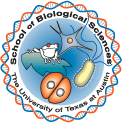|

|
|
BIO 160L - Immunology Lab |
| 2006, Kim |
Immunology was a hard class to begin with. The pace of the lab complemented what we were discussing in class and helped us learn using a hands on approach. I learned valuable skills like how to use a microscope. I had some basic comprehension from the microbiology lab but immunology lab vastly improved my skills. I also learned to slow down and work through things methodically. The quizzes were hard but i learned how to tackle problems and by thinking through them, it made it a lot easier. I was intimidated at first and my low quiz grades reflected that. Towards the end of the semester James helped boost our confidence by teaching us not to freak out and just work through everything systematically. Also i realized that going through the assigned reading either carefully or twice helped. Some of the questions were detailed, but necessary to know for future labs. |
|
| |
Top of Page |
| |
|
| 2006, Michael |
I think Bio 160L helped me with three major aspects of learning. First and foremost, this course had a very strong focus on understanding and manipulation of information, not just memorization. This thinking processes has helped me in all of my classes, because it allowed me to come up with a solution when all the information was not present. It also helped me question more of what i was being told, because I am actively thinking about how this information was obtained in the lab setting.
Furthermore, Bio 160L helped clarify some information from the immunology class which i was taking. For example, my immunology professor talked in great length about agglutination assays. However, even though i knew the steps from lecture, it really helped to actually perform the experiment to fully understand the practical application of this assay. Another important test which was strongly emphasised in immunology classes was the ELISA. This test has a fairly straight foreword explanation in the text and lecture, but becomes far more time consuming and complicated in the lab setting. The challenges of doing a correct Elissa or any other test for that matter, really helped get the point across of how complicated it really is, to run complex experiments in real life. This class really helps put lab work in perspective.
Finally, as a pre-med student, I had to take the MCAT. This class to my surprise was an extreme boost to my biology score. Some of the experiments that the MCAT biology essays liked to discuss, such as chromatography, are covered in great detail in Bio 160l. So while some people were trying to understand the processes being discussed in the essay. I already understood and had done what was being described. I also had a better understanding of the vocabulary involved such as mobile phase. The MCAT test is also designed to test your reasoning skills and not your memorization skills, a focus of BIO 160L. |
| |
Top of Page |
| |
|
| 2006, Thuy |
Although I was very satisfied with the class as a whole, I have to begin by admitting that I was completely put off by the weekly quizzes. I really felt that they were pointless since we hadn't performed the labs at all before and should be expected to know so much detail. Having said that, I soon realized what an important message Dr. Bryant was trying to teach with these quizzes and each of his lessons. It's helped me in every aspect of my life, even though I've decided not to pursue a career in health and science. Having taken Immunology Lab with Dr. Bryant, I've not only developed a strong foundation in immunological procedures that helped me in the graduate program I attended, I have also improved my ability to recognize and understand important details as well as communicate myself in a more effective way. In order to do well in this course though, you really have to dedicate the time and effort into reading each of the labs thoroughly before each lab, research some basic information about each lab to clarify what you don't understand, and TALK TO DR. BRYANT. Things may seem tedious and repetitive, but he is only trying to prepare you for the real world because even the slightest details really do matter (especially in healthcare!). The workload is definitely more than the number of credits earned, but the learning experience is priceless if you really stop and think about the purpose of what he's telling you. Dr. Bryant is a wonderful teacher and a great personality.
|
| |
Top of Page |
| |
|
|